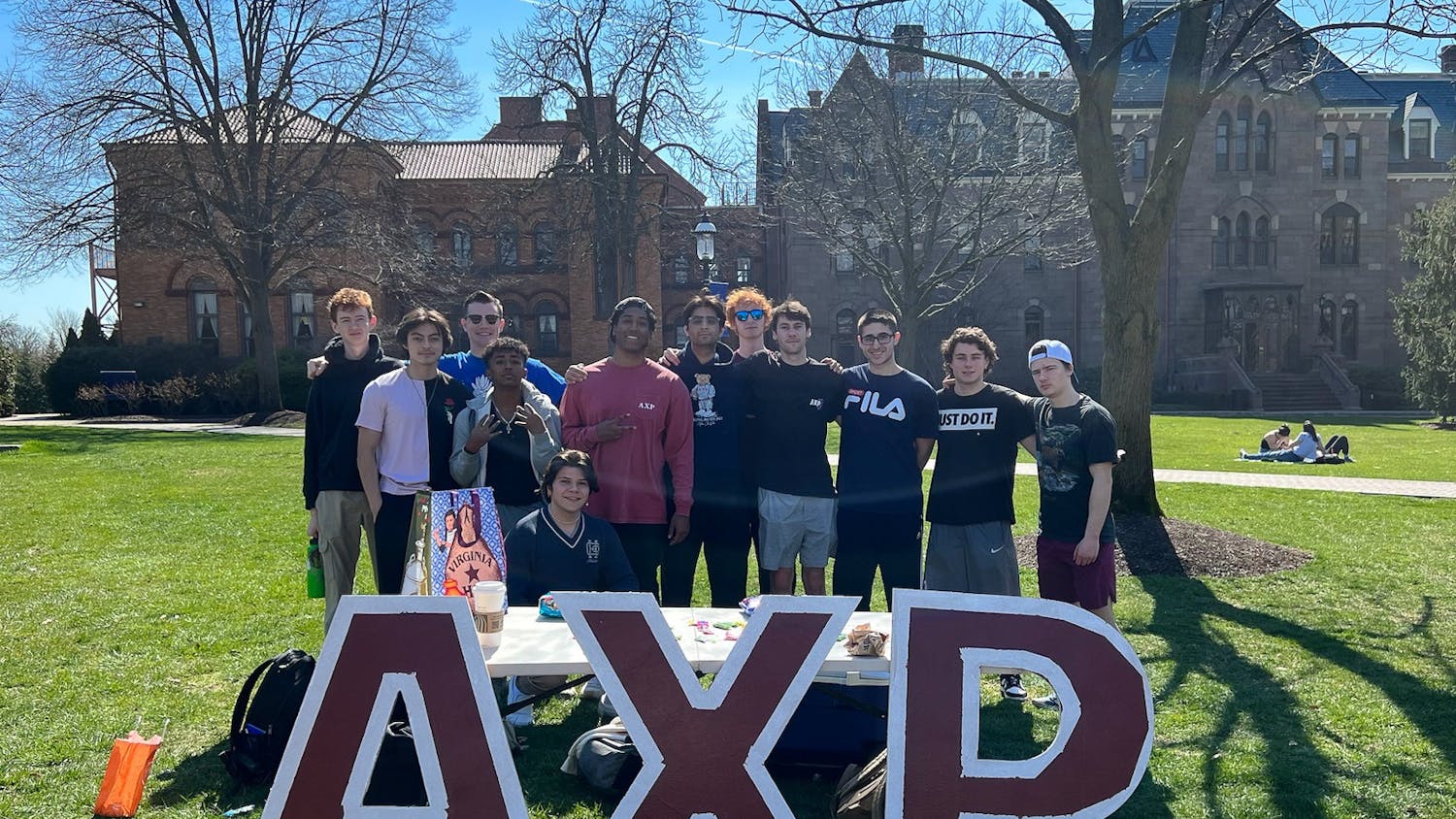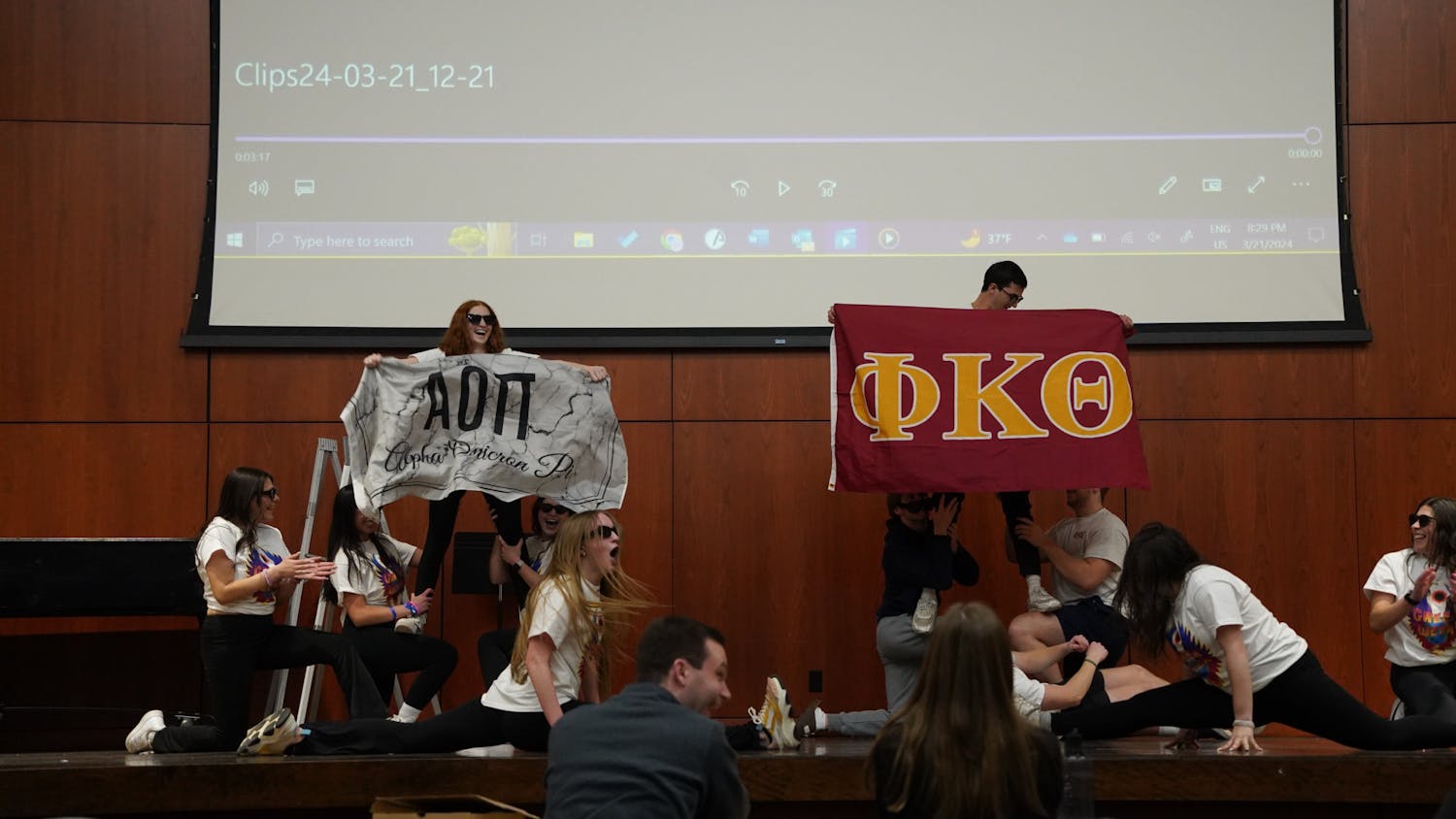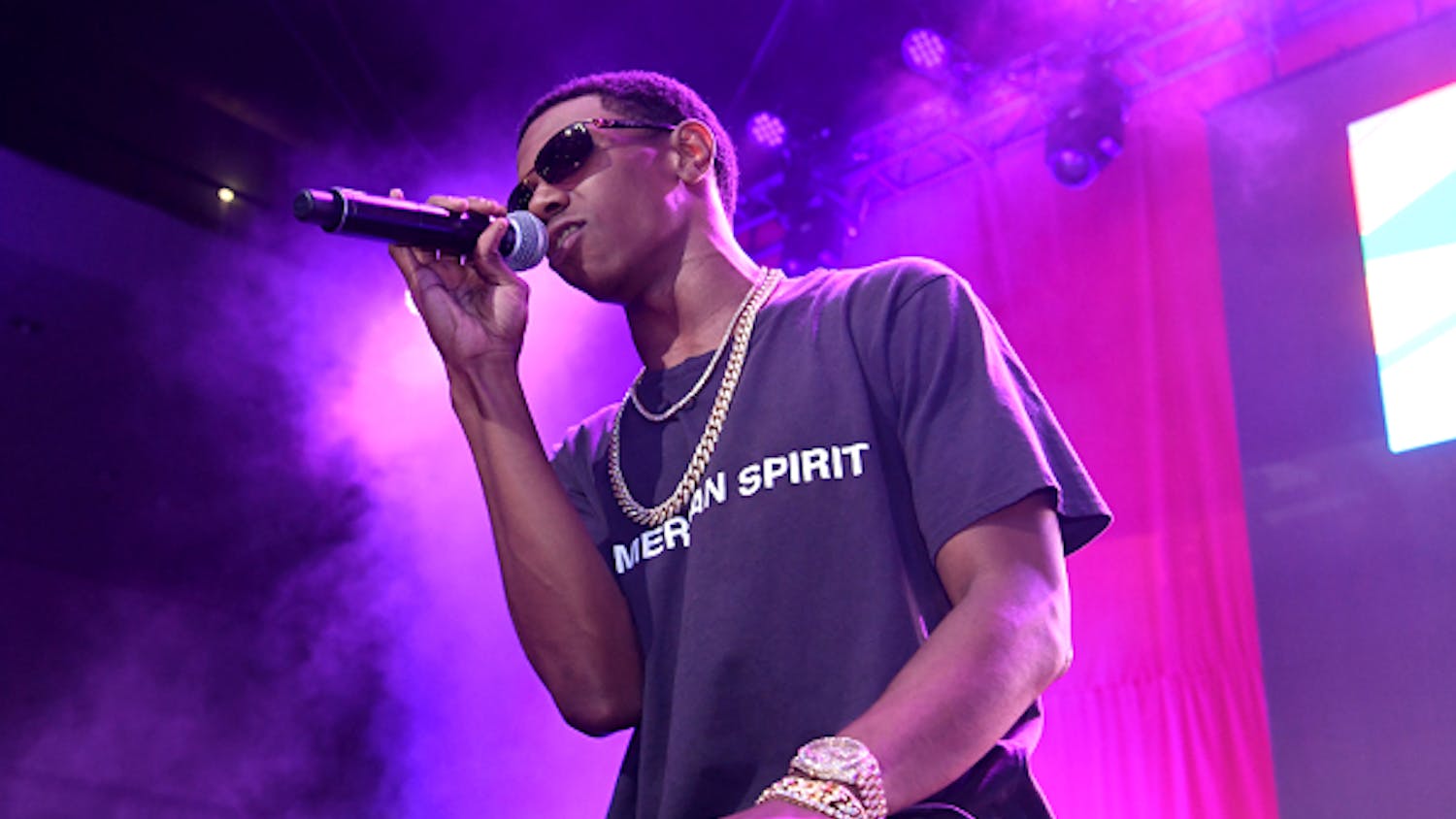 It was early December 2015, and no one wanted to set the fire alarm off in Aquinas Hall.
Still, the group of students were eager to learn. They wanted to celebrate the holidays with their friend.
But what if they triggered the building’s smoke detectors, forcing everyone inside out into the midst of a cold winter night with no time to prepare? That would leave a lot of people unhappy.
Instead, the group went outside themselves. With them came a little menorah purchased at a Walmart, some candles and a lighter.
They would partake in the Festival of Lights, fire alarms be damned.
It was Isabel Goodman’s first Hanukkah away from home.
A native of Pittsburgh and a follower of the Jewish faith, this is how Goodman – a freshman at the time – remembers spending one of the holiday’s eight nights last year. Hanukkah was already over by the time the University let out for winter break. Goodman, a marketing and finance major, celebrated Hanukkah on-campus while preparing for finals.
Luckily, she had her friends to celebrate with.
“They’re really interested in it,” Goodman said. “I guess they don’t know a lot of Jewish people.”
Goodman’s faith did not stop her from turning down a full ride in South Orange. Brought up as a reformed Jew – there is also conservative and orthodox – Goodman celebrates all the Jewish holidays, can read, write and speak Hebrew, had a bat mitzvah and fasts on Yom Kippur. She does not keep Kosher though, a personal choice, like the one to attend Seton Hall.
“I didn’t really care that it was Catholic at all,” she said.
Goodman’s family, all Jewish, never cared either, though there have been a few times where they busted her chops for attending a Catholic university.
“My grandma asked if they were going to convert me,” she said, laughing. “I told her ‘yeah.’”
That, of course, has not happened. While Goodman does not “go to temple all that often” – the closest one to campus is on Irvington Avenue – she said she has remained true to her faith since coming to SHU. At the same time, she has seized the opportunity to learn more about others through Seton Hall’s CORE curriculum.
Interestingly enough, she does not consider the curriculum all that Catholic. She said classes like Journey of Transformation focus more on universal ideas, thus avoiding a conflict in beliefs. A tour guide at Seton Hall, Goodman said she always offers positive remarks when prospective non-Catholic students ask about the impact of religion on campus and in the classroom.
“I don’t think the courses are Catholic. They really aren’t,” she said. “They’re pretty universal principles. Journey – we all took it – it’s parts from the Bible, parts from Aristotle – none of that really conflicts. I’m a tour guide, so I tell people whenever people ask ‘how Catholic is it?’ I’m like, ‘It’s really not Catholic.’ It’s the values behind Catholicism, which are universal. It’s being a good person.”
Dr. Nancy Enright, an associate professor of English and Catholic Studies who teaches Journey of Transformation, said that, depending on the class, Goodman is right. There are plenty of courses that have a stricter focus on Catholicism, but that tends not to be the case with CORE classes.
Enright, a Catholic, said that she tries to engage students of all religions and beliefs in class. She also sees the student body at Seton Hall becoming more diverse in faith.
“I don’t expect people to have any particular beliefs,” she said. “Everyone can just share their own feelings about the texts and I don’t even expect students to read the texts the way I do. I try to create a really open atmosphere so that we all talk to each other respectfully. Students usually respond well to that.”
As for Judaism specifically, Enright, like Goodman, said there is not much conflict in the school’s Catholic curriculum. Of course, there are some differences between the two religions. While both follow the Old Testament, or Torah, the two differ in their beliefs regarding free will, sin, death and the afterlife. The biggest difference, according to Enright, is that Jewish people view Jesus Christ as a teacher, while Catholics believe him to be the son of God.
Enright added that she enjoys discussing the differences between Catholicism and other religions in her classes.
“It’s really good to have students talking openly about their backgrounds and how they react to the texts,” she said. “I always feel like [I’m learning from them].”
Goodman said she feels the same way. She enjoys learning about the Catholic faith and other religions, but she also feels comfortable sharing her own beliefs at Seton Hall.
“[Seton Hall] fulfills everything we need to be a Catholic university without being like, ‘you need to be Catholic. You need to believe what we believe,’” Goodman said in a joking whisper. “And I do believe what they believe, aside from a few key details.”
Gary Phillips can be reached at gary.phillips@student.shu.edu or on Twitter @GaryHPhillips.
It was early December 2015, and no one wanted to set the fire alarm off in Aquinas Hall.
Still, the group of students were eager to learn. They wanted to celebrate the holidays with their friend.
But what if they triggered the building’s smoke detectors, forcing everyone inside out into the midst of a cold winter night with no time to prepare? That would leave a lot of people unhappy.
Instead, the group went outside themselves. With them came a little menorah purchased at a Walmart, some candles and a lighter.
They would partake in the Festival of Lights, fire alarms be damned.
It was Isabel Goodman’s first Hanukkah away from home.
A native of Pittsburgh and a follower of the Jewish faith, this is how Goodman – a freshman at the time – remembers spending one of the holiday’s eight nights last year. Hanukkah was already over by the time the University let out for winter break. Goodman, a marketing and finance major, celebrated Hanukkah on-campus while preparing for finals.
Luckily, she had her friends to celebrate with.
“They’re really interested in it,” Goodman said. “I guess they don’t know a lot of Jewish people.”
Goodman’s faith did not stop her from turning down a full ride in South Orange. Brought up as a reformed Jew – there is also conservative and orthodox – Goodman celebrates all the Jewish holidays, can read, write and speak Hebrew, had a bat mitzvah and fasts on Yom Kippur. She does not keep Kosher though, a personal choice, like the one to attend Seton Hall.
“I didn’t really care that it was Catholic at all,” she said.
Goodman’s family, all Jewish, never cared either, though there have been a few times where they busted her chops for attending a Catholic university.
“My grandma asked if they were going to convert me,” she said, laughing. “I told her ‘yeah.’”
That, of course, has not happened. While Goodman does not “go to temple all that often” – the closest one to campus is on Irvington Avenue – she said she has remained true to her faith since coming to SHU. At the same time, she has seized the opportunity to learn more about others through Seton Hall’s CORE curriculum.
Interestingly enough, she does not consider the curriculum all that Catholic. She said classes like Journey of Transformation focus more on universal ideas, thus avoiding a conflict in beliefs. A tour guide at Seton Hall, Goodman said she always offers positive remarks when prospective non-Catholic students ask about the impact of religion on campus and in the classroom.
“I don’t think the courses are Catholic. They really aren’t,” she said. “They’re pretty universal principles. Journey – we all took it – it’s parts from the Bible, parts from Aristotle – none of that really conflicts. I’m a tour guide, so I tell people whenever people ask ‘how Catholic is it?’ I’m like, ‘It’s really not Catholic.’ It’s the values behind Catholicism, which are universal. It’s being a good person.”
Dr. Nancy Enright, an associate professor of English and Catholic Studies who teaches Journey of Transformation, said that, depending on the class, Goodman is right. There are plenty of courses that have a stricter focus on Catholicism, but that tends not to be the case with CORE classes.
Enright, a Catholic, said that she tries to engage students of all religions and beliefs in class. She also sees the student body at Seton Hall becoming more diverse in faith.
“I don’t expect people to have any particular beliefs,” she said. “Everyone can just share their own feelings about the texts and I don’t even expect students to read the texts the way I do. I try to create a really open atmosphere so that we all talk to each other respectfully. Students usually respond well to that.”
As for Judaism specifically, Enright, like Goodman, said there is not much conflict in the school’s Catholic curriculum. Of course, there are some differences between the two religions. While both follow the Old Testament, or Torah, the two differ in their beliefs regarding free will, sin, death and the afterlife. The biggest difference, according to Enright, is that Jewish people view Jesus Christ as a teacher, while Catholics believe him to be the son of God.
Enright added that she enjoys discussing the differences between Catholicism and other religions in her classes.
“It’s really good to have students talking openly about their backgrounds and how they react to the texts,” she said. “I always feel like [I’m learning from them].”
Goodman said she feels the same way. She enjoys learning about the Catholic faith and other religions, but she also feels comfortable sharing her own beliefs at Seton Hall.
“[Seton Hall] fulfills everything we need to be a Catholic university without being like, ‘you need to be Catholic. You need to believe what we believe,’” Goodman said in a joking whisper. “And I do believe what they believe, aside from a few key details.”
Gary Phillips can be reached at gary.phillips@student.shu.edu or on Twitter @GaryHPhillips.

Comments




